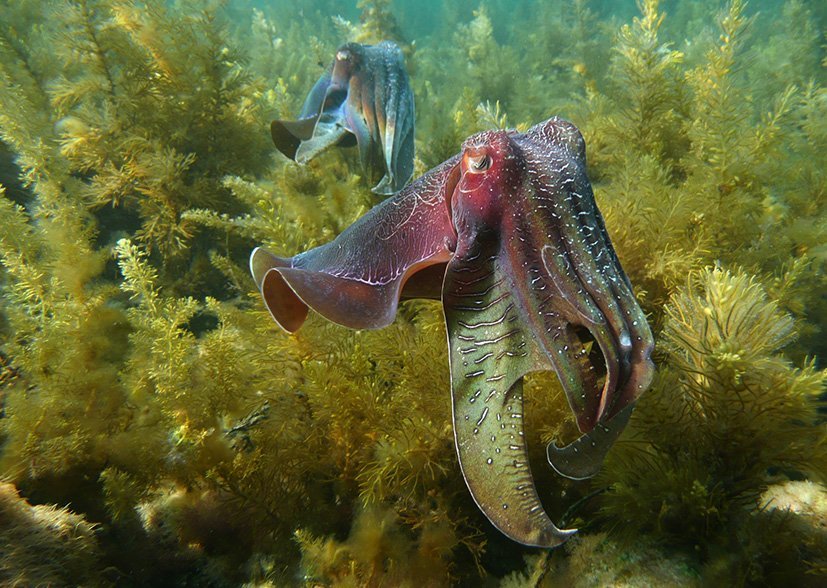Squids on the rise in changing ocean

HUMAN ACTIVITY IS usually associated with species decline, but according to new Australian research, cephalopod populations (squid, octopus and cuttlefish) are booming in our changing oceans.
Researchers at the University of Adelaide, South Australia, have compiled a global database of cephalopod catch rates to uncover long-term trends in their abundance. The results are published today in the journal Current Biology.
“Our analyses showed that cephalopod abundance has increased since the 1950s, a result that was remarkably consistent across three distinct groups,” said Dr Zoë Doubleday, a research fellow at the University of Adelaide’s Environment Institute and School of Biological Sciences, and lead author on the paper.

The study started as an investigation into declining numbers of the giant Australian cuttlefish (Sepia apama), pictured here in Spencer Gulf, South Australia. (Image credit: David Wiltshire)
“Cephalopods are often called ‘weeds of the sea’ as they have a unique set of biological traits, including rapid growth, short lifespans and flexible development,” Zoë added. “These allow them to adapt to changing environmental conditions such as temperature more quickly than many other marine species, which suggests that they may be benefiting from a changing ocean environment.”
The research stemmed from an investigation into declining numbers of the iconic giant Australian cuttlefish in South Australia’s Spencer Gulf.
“To determine if similar patterns were occurring elsewhere, we compiled this global-scale database,” explained Zoe. “Surprisingly, analyses revealed that cephalopods, as a whole, are in fact increasing; and since this study, cuttlefish numbers from this iconic population near Whyalla are luckily bouncing back.”
RELATED: Giant cuttlefish, undetermined decline
According to the project leader, Professor Bronwyn Gillanders, the global increase in cephalopods may be driven by large-scale changes to the marine environment brought about by human activities.
“We’re currently investigating what may be causing them to proliferate – global warming and overfishing of fish species are two theories,” she said. “It is a difficult, but important question to answer, as it may tell us an even bigger story about how human activities are changing the ocean.”
READ MORE:

